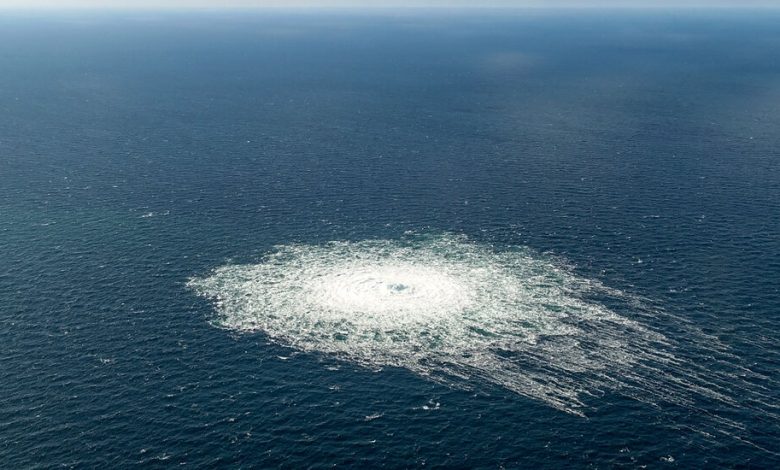Pipeline breaks look deliberate, Europeans say, exposing vulnerability in vital energy infrastructure.

BERLIN — Explosions under the Baltic Sea and the rupture of major natural gas pipelines from Russia to Germany appeared to be a deliberate attack, officials across Europe said on Tuesday, deepening uncertainty about European energy security amid soaring prices and fears of running short of fuel over the winter.
The apparent attack had no immediate effect on European energy supplies; Nord Stream 2 has never gone into service, and Nord Stream 1 has been shut down since August. But it raises the stakes — and European jitters — in a simmering energy war between Russia and the West prompted by the invasion of Ukraine. Repairs could take up to several months, experts say, beginning with detailed inspections of the damage before any work could begin.
No matter who is to blame, the leaks hammered home the message that Europe and its energy infrastructure are vulnerable, even if Europe succeeds in its mission of weaning itself from Russian energy.
Military and security experts have warned for years of the danger posed by so-called hybrid warfare, meaning the ability to undermine democratic functions, disrupt normal life and sow chaos and uncertainty. The Nord Stream leaks made evident how exposed vital systems can be to outside attacks, said Julian Pawlak, a researcher at the German Institute for Defense and Strategic Studies.
“The most important message that somebody wants to send, is what one is capable of doing with an offline pipeline can also be done with active pipelines, or undersea cables, or other infrastructure,” Mr. Pawlak said.
